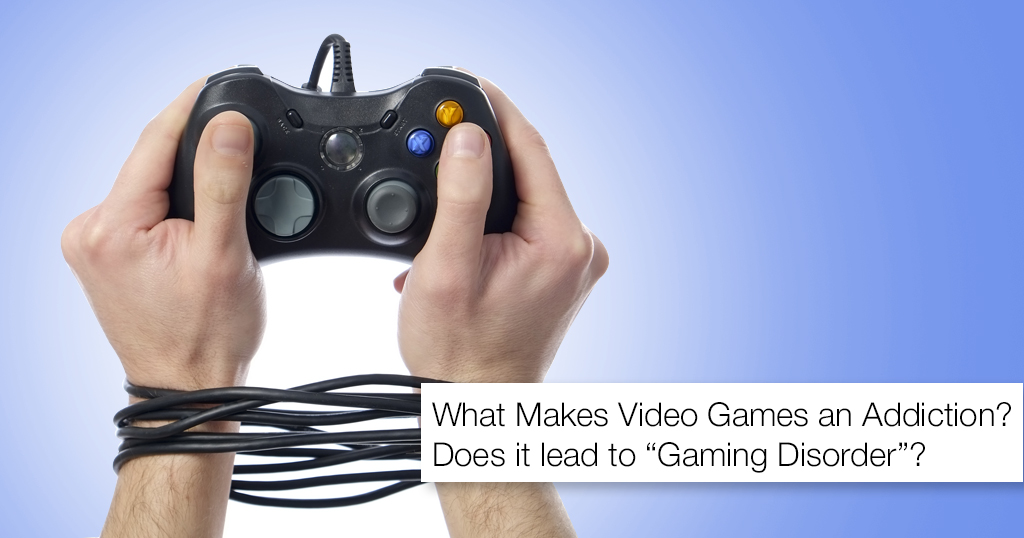Overview
While video games becoming addictive would not surprise most of us who have had to draw our kids off from video games, what is shocking is that the WHO (World Health Organization) added “gaming disorder” as a diagnosis to the International Classification of Diseases (ICD), alongside substance use disorders and pathological gambling in 2018.
Is Gaming Disorder Addictive?
Yes, if a video game (online or offline) becomes un-put-down-able, it becomes an addiction that could be worse than drugs, even leading to hospitalization. If something leads you to end up in a hospital, can you still call it just a game?
Many schools and colleges have already banned video games (especially PUBG’ (Player Underground’s Battle Ground), a popular online addictive game) on their campuses. There are demands for a total ban on this game because of user’s seeming inability to put the game down and deal with other things like living a real life. Cases of addiction to this and other video games have been reported to the NIMHANS (National Institute of Mental Health and Neuro Sciences) too.
What is gaming disorder?
The WHO defines ‘Gaming disorder’, which basically means addiction to digital or video games, as a pattern of gaming behavior characterized by:
- Weakened control over gaming
- More and more priority given to gaming over other physical activities to the extent that gaming becomes priority over other interests and daily activities
- Continuance or escalation of gaming in spite of negative consequences
In other words, for gaming disorder to be diagnosed, the behavioral pattern of an addict (adult or child) must necessarily be severe to cause damage in social, personal, family, educational, occupational or other significant areas of functioning that would normally become evident for at least one year.
What makes gaming so addictive?
Studies say that when gaming addicts are engrossed in video games, it triggers certain direct and intense pathways in their brains, in the same way that a drug addict’s brain is affected by a particular substance. The gaming stimulates a neurological response in the brain that influences feelings of reward and pleasure, and the outcome (in the extreme stages) is manifested as addictive behavior.
Warning Signs to Watch For
Here’s what we have to look for in ourselves or someone close to us — a child, spouse, family member, or a friend. If five or more of the following signs are seen consistently in one year, get help, seek a specialist soon.
These signs should be watched for whether an individual is playing online or offline video games:
- Thinking about the game always or a lot of the time
- Feeling down when there’s no chance to play
- Urge to spend more and more time playing to feel good
- Cannot quit or even play less
- Not liking to do other things that was enjoyed earlier
- Going through problems at school, college work, or home because of gaming
- Continuing to play despite the above mentioned problems
- Started to lie about how much time is spent on playing
- Using digital/video games to ease bad feelings and moods
Should everyone who likes gaming worry?
Gaming disorder affects only a small proportion of population engaged in digital/video gaming activities. However, people participating in gaming should be alert to the amount of time they spend on gaming activities. It should not affect other daily activities.
Experts say that depression is the leading co-morbid disorder with gaming addiction. In addition, self-esteem is a core component as people with negative self-esteem are potential candidates who engage in addictive gaming behaviors. Social isolation prompted by gaming addiction may also lead to increase in depressive symptoms, with research suggesting that depression can lead to addictive use of internet and vice-versa.
Preventing Gaming Disorder
To keep the time spent under control, try the following tips for adults and kids alike:
- Set a time limit for play in the day and stick to it
- Keep all the gadgets including phones out of the bedroom so you don’t play into the whole night
- Go out to play and involve in other activities every day, including exercise. This may lower the health risks of sitting and playing for long hours
No one knows whether certain kinds of games are more likely to lead to gaming disorders. But for the time being, make sure that you or your loved ones are playing games rated appropriate for their age.


















